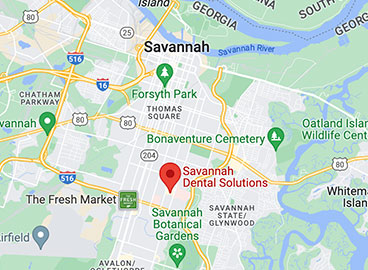Tooth enamel is the hard, outer layer that covers and protects the surface of your teeth. It’s the strongest substance in your body, even stronger than bone, and it plays a crucial role in maintaining your dental health. But despite its strength, enamel is not invincible. Understanding what enamel is, how it works, and how to protect it can help you prevent tooth enamel loss and maintain a healthy, beautiful smile.
What Is Enamel on Teeth?
Enamel is the outermost layer of your teeth and acts as a protective barrier for the more sensitive layers underneath. The enamel surface is translucent, allowing the color of the underlying dentin to show through, which is what gives your teeth their natural appearance. Enamel protects your teeth from the daily wear and tear caused by chewing, biting, and grinding. It also shields your teeth from temperature changes and harmful substances that could lead to tooth decay.
How Does Tooth Enamel Protect Your Teeth?
The primary role of tooth enamel is to protect the inner structures of your teeth. Without enamel, your teeth would be vulnerable to damage, sensitivity, and decay. Enamel protects against:
- Erosive Tooth Wear: Tooth enamel serves as the first line of defense against the mechanical forces of chewing and grinding.
- Acidic Foods: Enamel acts as a barrier against the acids found in certain foods and drinks, which can weaken and erode the tooth surface.
- Tooth Decay: By forming a shield over the sensitive dentin and pulp, enamel prevents bacteria and plaque from causing cavities and infections.
What Causes Enamel Erosion?
While enamel is incredibly strong, it is not indestructible. Enamel erosion occurs when acids and other harmful substances wear away the enamel surface. Some of the most common causes of enamel erosion include:
- Acidic Foods and Drinks: Frequent consumption of citrus fruits, soda, and other acidic foods can weaken enamel over time.
- Poor Oral Hygiene: Insufficient brushing and flossing allow plaque to build up, leading to tooth decay and enamel loss.
- Teeth Grinding: Chronic grinding and clenching can wear down enamel, resulting in erosive tooth wear.
- Stomach Acid: Acid reflux or frequent vomiting, as seen in conditions like bulimia, can expose teeth to stomach acids, causing enamel erosion.
- Dry Mouth: Saliva plays a crucial role in neutralizing acids and protecting tooth enamel. A lack of saliva can increase the risk of enamel damage.
Signs of Tooth Enamel Loss
It’s important to recognize the signs of enamel loss early to prevent further damage. Common symptoms include:
- Increased tooth sensitivity to hot, cold, or sweet foods and drinks.
- A smooth or shiny appearance on the tooth surface, indicating enamel erosion.
- Yellowing of the teeth as the underlying dentin becomes more visible.
- Chips, cracks, or uneven edges on the enamel surface.
Can Enamel Be Restored?
Unfortunately, enamel does not regenerate. Once it’s lost, it cannot grow back. However, there are ways to strengthen and repair teeth affected by enamel loss. Some common dental treatments include:
- Fluoride Treatments: Fluoride can help strengthen existing enamel and make it more resistant to acid attacks.
- Tooth Bonding: For minor enamel damage, your dentist may apply a tooth-colored resin to the affected area to restore the tooth’s appearance and function.
- Dental Crowns: In cases of severe enamel erosion, a crown may be placed over the tooth to protect it and restore its structure.
- Dietary Changes: Reducing your intake of acidic foods and drinks can help prevent further enamel erosion.
How to Prevent Tooth Enamel Loss
The best way to maintain healthy enamel is through prevention. Here are some tips to protect your enamel and keep your teeth strong:
- Practice Good Oral Hygiene: Brush twice a day with fluoride toothpaste and floss daily to remove plaque and prevent tooth decay.
- Limit Acidic Foods and Drinks: Avoid excessive consumption of citrus fruits, soda, and other acidic items. If you do indulge, rinse your mouth with water afterward.
- Use a Soft-Bristled Toothbrush: Aggressive brushing can wear down enamel over time. Use a soft-bristled toothbrush and gentle strokes.
- Stay Hydrated: Drinking plenty of water helps maintain saliva production, which neutralizes acids and protects the enamel surface.
- Wear a Night Guard: If you grind your teeth at night, a custom-fitted night guard can prevent erosive tooth wear and protect your enamel.
Developing Enamel: Why It Matters for Children
Children’s teeth are especially vulnerable to enamel erosion as they develop. Ensuring proper pediatric dental care during these formative years is essential for long-term dental health. Encourage regular dental check-ups and a healthy diet to support strong enamel development.
Trust Savannah Dental Solutions for Your Dental Health
At Savannah Dental Solutions, we understand the importance of protecting your tooth enamel and overall dental health. Whether you’re dealing with enamel erosion, tooth sensitivity, or other dental issues, our experienced team is here to help. From preventive care to restorative treatments like tooth bonding, we offer personalized solutions to keep your smile strong and healthy.
Schedule your appointment today and let us help you maintain and protect your enamel for years to come.






